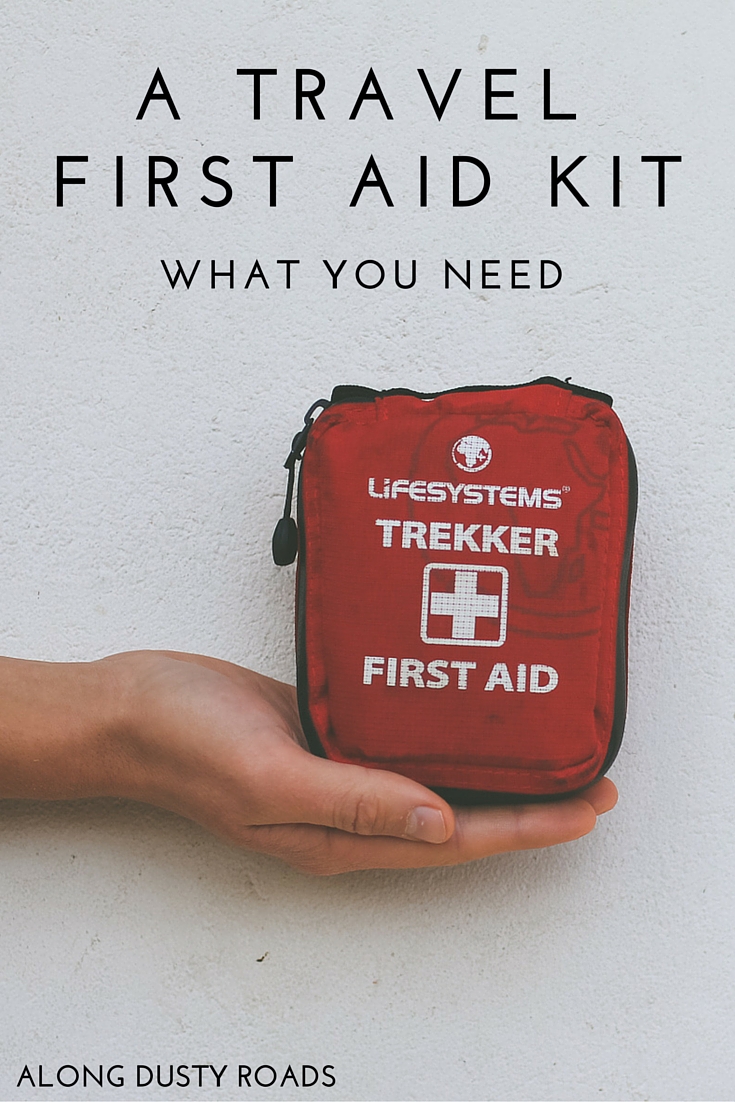That headache, blister, cut, scrape, bite or sting never seems to happen when you're sitting in your hostel with full access to the treasure trove supplies that is in your big pack. No, it's when you've been thrown around on a speed-boat, got tangled in vines and gone arse over tit, pissed off an ant or tried to open a beach-side beer with your bare hands.
So, it makes sense to have an emergency supply of your most frequently needed medical supplies with you at all times. Indeed, this is an adventurous budget backpacker essential.
I'm not expecting you to be a one-stop medical shop, but ideally be able to treat the following common medical conditions whilst up a mountain, in a forest, by the beach or on the bus:
headaches | small cuts and scrapes | mild sprains (those that you can still walk on) | period pain | insect bite/sting | hay-fever or mild allergic reaction | diarrhoea | nausea (feeling sick) | blisters
By no means is this exhaustive, and over the last few years months it has been somewhat adjusted to reflect our accident-prone ways and hangover requirements, but below is a breakdown of what we cram into our small emergency fist aid kit and always keep in our daypack.
*You can either head to a travel shop and pick up a mini first-aid kits like this for a large or invest in a suitable storage bag and visit your local pharmacy to make your own version.
MEDICATION
4 x 500mg paracetamol (mild pain medication)
4 x 200mg ibuprofen (mild pain medication)
4 x 8/500 co-codamol (stronger OTC pain medication)
2 x 4mg chloramphenamine (OTC allergy medication)
2 x 10mg metoclopramide (anti-nausea medication)
2 x 2mg loperamide (OTC diarrhoea medication)
2 x rehydration sachets
*OTC - over the counter
** Make sure you include the doses information for each medication with the pills. It's all very well having the drugs but if you don't know how much to take and when, they're next to useless!
DRESSING AND BANDAGES
1 x roll of easy tear micropore medical tape
2 x blister plasters
2 x alcohol wipes (ideal for cleaning small cuts and scrapes)
6 x plasters in different sizes
1 x pack gauze swabs (use to clean wounds with sterile water or to stop bleeding)
1 x small sterile dressing (for cuts that are a little to large for a standard plaster)
1 x set of latex gloves (if it's not you with the cut, it's definitely preferable to put something between your hand and their blood!)
1 x small pack of steri-strips (useful for holding together cuts that open up easily)
1 x small pair of scissors
1 x small bandage (to hold dressing in place or support a sprain)
1 x tester sized bottle of bug repellent
1 x sachet of sterile water (useful to clean wounds in a dirty environment)
So, you've gotten super-organised, and have your first aid pack all ready. What else do you need to know?
#1 take it everywhere - you never know when disaster will strike! We would have been up the proverbial sh*tter had we not had these medical supplies when I got bit by a dog a little while ago in the middle of a hike along a Peruvian railroad, 10 kms from the nearest bit of civilisation.
#2 keep it well-stocked - it's all very well having a lovely little designated bag for all your medical emergencies, but if all that's left in there is a out-of-date tube of antiseptic cream and a solitary paracetamol, it's not going to do you much good! All the items listed above are non-prescription and can be found in almost any pharmacy around the world.
#3 keep it handy - if there's one thing all backpacks come with, it's an inordinate number of pockets. Make sure your kit is always somewhere easily accessible in case you need it quick! We keep it in a little pack at the bottom of our bag so it's all in one place and always there.
If you find you need more than what is supplied here, then maybe that's the time you should think about seeking medical assistance. The same goes for any pain, sprain, cut or wound that doesn't seem to be improving within a couple of days.
Found this article useful? Why don't you check out some more of the 'medical kit' series?
like it? pin it!
Disclaimer: This article is not designed to and does not provide medical advice, professional diagnosis, opinion, treatment or services to you or to any other individual. Through this article, alongdustyroads.com provides general information for educational purposes only. The information provided in this article, or through linkages to other sites, is not a substitute for medical or professional care, and you should not use the information in place of a visit, call consultation or the advice of your doctor/travel nurse or other healthcare provider. alongdustyroads.com is not liable or responsible for any advice, course of treatment, diagnosis or any other information, services or product you obtain through this article.















